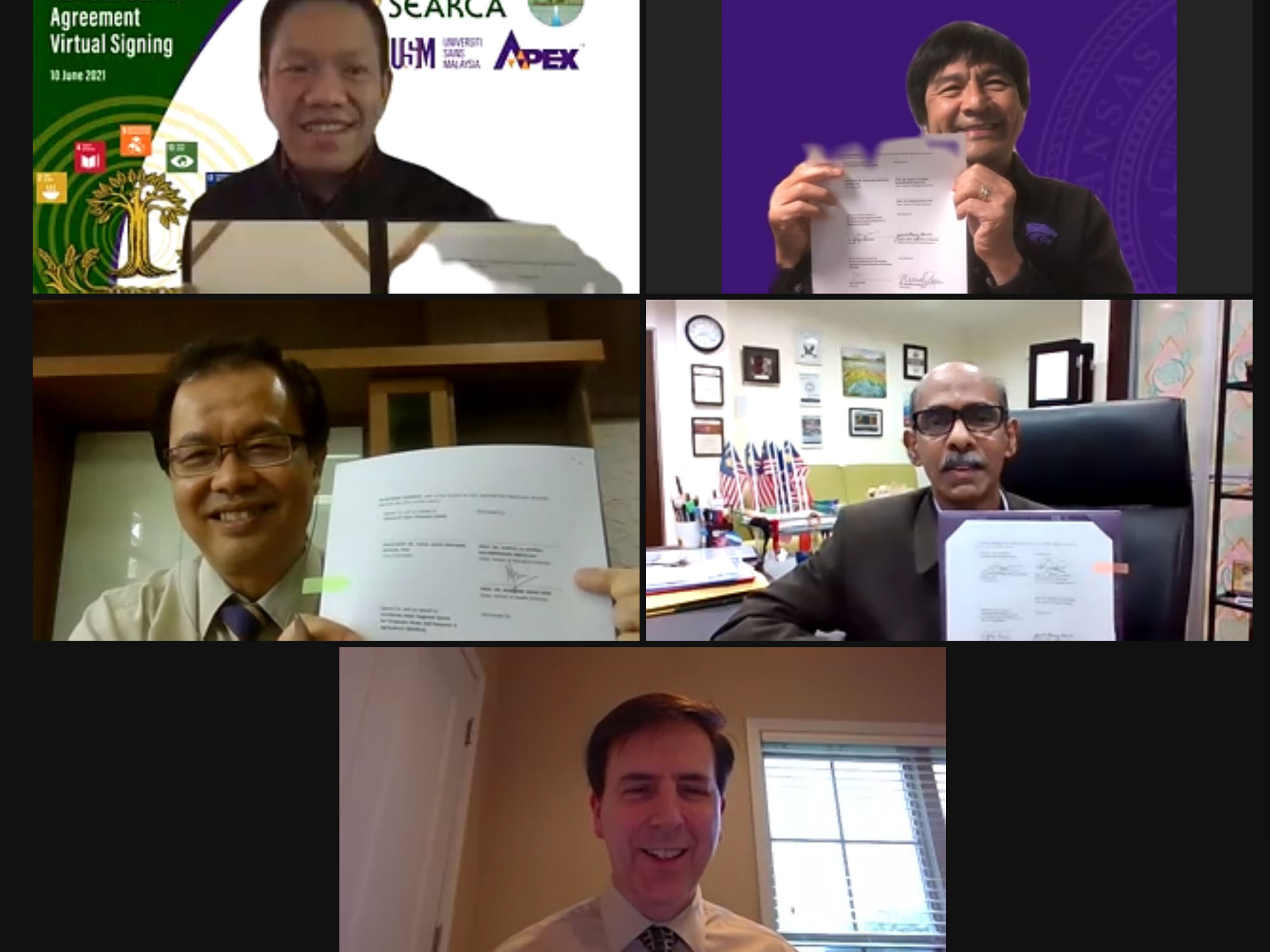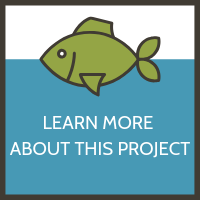
By Alaina Dismukes
A recent virtual signing ceremony brought together experts from southeast Asia and the U.S. to foster growth in aquaculture for Cambodia.
Three institutions created a partnership to continue to build the capacity of lecturers and researchers in the Faculty of Fisheries at the Royal University of Agriculture (RUA) in Cambodia. Through this collaboration, a Cambodian student will be trained and will conduct research at the university.
The collaboration is between the Southeast Asian Regional Center for Graduate Study and Research in Agriculture (SEARCA), the Universiti Sains Malaysia, and the Center of Excellence on Sustainable Agricultural Intensification and Nutrition (CE SAIN) at RUA.
“It is my pleasure to be a part of this partnership, which has brought together four countries – Cambodia, Malaysia, Philippines, and the United States,” said Lyda Hok, director of CE SAIN at RUA. “This new partnership will strengthen our program thanks to the student who is coming on board.”
By increasing human capacity at RUA, the agreement will support a Feed the Future Innovation Lab for Fish project, Development of Bighead Catfish Culture for Sustainable Aquaculture project in Cambodia. The Bighead Catfish project is working to help provide resources and knowledge to reduce food and nutrition insecurity in Cambodia. The Bighead Catfish project is led by RUA in partnership with WorldFish, Texas A&M, and Kansas State University.
Cambodia has one of the most biologically diverse freshwater fisheries in the world thanks to the Tonle Sap Lake and the Mekong River.
“Because fishing in the Tonle Sap Lake is a source of livelihood for many, the biological diversity of the lake is decreasing. That is why our research is so crucial because we are targeting to stop the depletion of the lake’s small fish used as aquaculture feed. One of our goals in the project is to formulate a soybean-meal-based commercial feed for bighead catfish,” said Manny Reyes, a research professor for Kansas State University and investigator for the Fish Innovation Lab project.
Ideally, the United States, being a principal soybean exporter, will help supply soybean for the bighead catfish soybean-meal-based feed, increasing fish production in Cambodia’s rapidly growing population.
“We are excited about what will come from this project and this new partnership,” Reyes said. “Building capacity in Cambodia in terms of sustainable aquaculture is a key step for us and our project as we work to help with food insecurity in Cambodia.”
Published June 21, 2021

